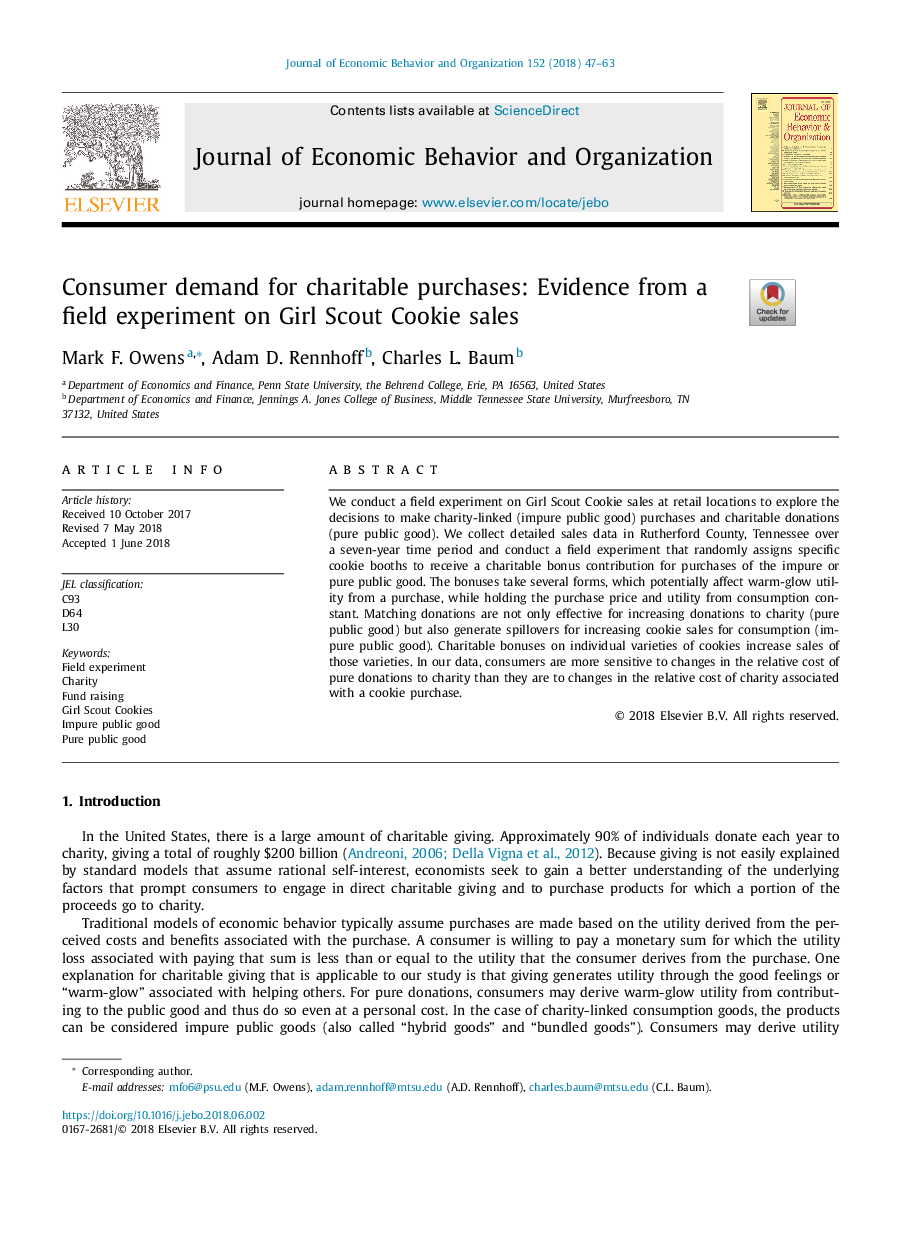| Article ID | Journal | Published Year | Pages | File Type |
|---|---|---|---|---|
| 7242437 | Journal of Economic Behavior & Organization | 2018 | 17 Pages |
Abstract
We conduct a field experiment on Girl Scout Cookie sales at retail locations to explore the decisions to make charity-linked (impure public good) purchases and charitable donations (pure public good). We collect detailed sales data in Rutherford County, Tennessee over a seven-year time period and conduct a field experiment that randomly assigns specific cookie booths to receive a charitable bonus contribution for purchases of the impure or pure public good. The bonuses take several forms, which potentially affect warm-glow utility from a purchase, while holding the purchase price and utility from consumption constant. Matching donations are not only effective for increasing donations to charity (pure public good) but also generate spillovers for increasing cookie sales for consumption (impure public good). Charitable bonuses on individual varieties of cookies increase sales of those varieties. In our data, consumers are more sensitive to changes in the relative cost of pure donations to charity than they are to changes in the relative cost of charity associated with a cookie purchase.
Related Topics
Social Sciences and Humanities
Economics, Econometrics and Finance
Economics and Econometrics
Authors
Mark F. Owens, Adam D. Rennhoff, Charles L. Baum,
